Russia Launches Large Air Attack With Iranian Drones
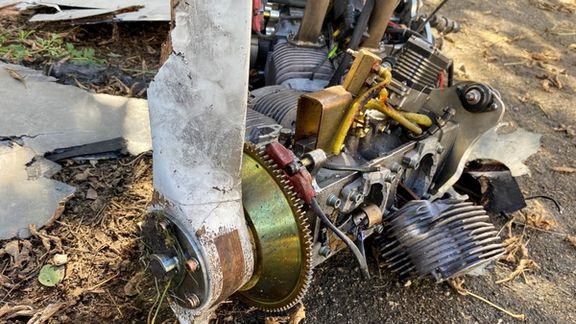
Russia launched 36 Iranian drones on Ukraine, Ukraine's Air Force said on Tuesday, adding that its air defense systems destroyed 27 of the air weapons.

Russia launched 36 Iranian drones on Ukraine, Ukraine's Air Force said on Tuesday, adding that its air defense systems destroyed 27 of the air weapons.
The attacks with the Iran-made Shahed drones targeted the Odesa, Mykolaiv and Kherson regions, the Air Force said on the Telegram messaging app. The attack on Odesa Oblast lasted for three hours, with transport infrastructure targeted.
On Oct. 8, the Air Force's spokesperson Yuri Ihnat said Russia will likely launch a record number of the Iranian-made drones in the coming fall and winter months.
The official pointed out that Russian forces launched over 500 Shahed-type drones in attacks against Ukraine in September alone.
Kherson region's administration said on its Telegram channel that over the past day, Russia carried out 79 instances of shelling including from mortars, artillery and with the use of drones, injuring four people and damaging several buildings.
Iran has supplied hundreds of the kamikaze Unmanned Aerial Vehicles (UAV) to Russia since mid-2022, which Moscow has used extensively to target civilian infrastructure and cities.
The drones are also used during massive missile attacks to overwhelm Ukrainian air defenses. The drones are relatively cheap, costing around $20,000 each and Ukraine sometimes has to fire much more expensive anti-air missiles to bring them down.
Although Iran has been denying its supply of drones, and possibly other weapons to Russia, the United States and its NATO allies have imposed a series of sanctions on individuals and entities involved in the drone shipments.
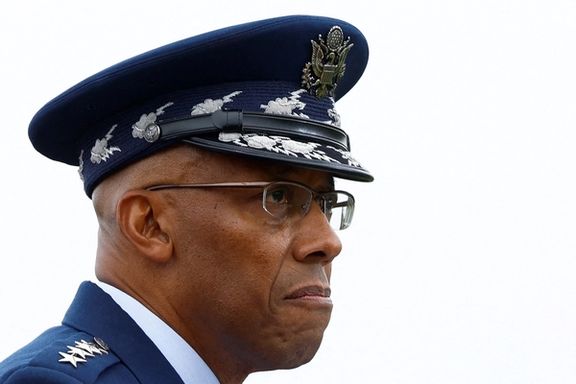
The US top general late Monday warned Iran not to get involved in the crisis in Israel and said he did not want the conflict to the broaden, as Lebanese Hezbollah fired rockets onto northern Israel.
The White House earlier on Monday said that Iran was complicit even though the United States has no intelligence or evidence that points to Iran's direct participation in attacks in Israel by Palestinian Islamist group Hamas.
Asked what his message for Iran was, General Charles Q. Brown, the chairman of the Joint Chiefs of Staff, said: "Not to get involved."
Israeli shelling on Lebanon killed at least three Hezbollah militants on Monday, and Israel said one of its officers was killed during an earlier cross-border raid claimed by Palestinians in Lebanon.
The cross-border violence marked a significant expansion of a conflict between Israel and Palestinian militants in Gaza to the Israeli-Lebanese border further north.
Iran-backed Hezbollah and Israel fought a brutal month-long war in 2006.
"We want to send a pretty strong message. We do not want this to broaden, and the idea is for Iran to get that message loud and clear," Brown told a small group of reporters traveling with him to Brussels, in his first public comments since being confirmed to the job last month.
The US military is "surging" fresh supplies of air defenses, munitions and other security assistance to Israel to help it respond to an unprecedented weekend attack by Hamas.
On Sunday, the Pentagon announced that it was sending an aircraft carrier strike group closer to Israel.
"It sends a very strong message of support for Israel. But it's also to send a strong message of deterrence to contain broadening this particular conflict," Brown said.
He compared Hamas' actions to those of Islamic State militants.
Report by Reuters
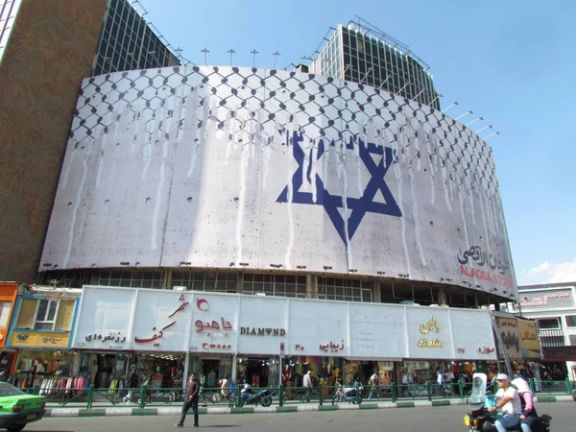
During the first three days of the attack on Israel by Hamas, Iranian officials and media have voiced slogans, wishful thinking, and disinformation in their rhetoric.
However, the ordinary citizens swiftly made it evident that they were not inclined to accept the regime's rhetoric. The public promptly ridiculed the government's poorly constructed celebration of Hamas's "victory" just hours after the attacks commenced. Many took to social media to question the government, asking, "Are you celebrating hundreds of lives lost on both sides?"
On the third day, a poorly assembled piece of disinformation on the state TV's news channel, IRINN, backfired. Many Iranians quickly pointed out that the footage shown in the Monday morning news bulletin, depicting Hamas militants supposedly taking Israeli army generals hostage, was actually from the conflict in Nagorno Karabakh two weeks prior, during which Azerbaijani commandos were apprehending local Armenian officials.
Sunday afternoon in a stadium in Tehran, tens of thousands reacted to the government's propaganda by telling in explicit rude terms where to shove hundreds of Palestinian flags that were hoisted around the stadium.
Some observers noted that the change from polite slogans in the past about "Neither Gaza nor Lebanon" to this new sexually explicit slogan was the outcome of the Iranian government's refusal to listen to what the people want.
Off the beaten track of state-run propaganda, in an article on a slightly independent website, reformist figure Azar Mansoori tried to explain "Why Iranians no longer support the Palestinian resistance." She pointed out that 45 years of government propaganda promoting the "resistance" has confined support for Palestinian movements to a few state-owned media outlets. She argued that the fervent pro-Palestinian rhetoric has waned due to the government's double standards.
Mansoori argued that while the government constantly lent political and material support to the Palestinian groups, it ignored the repression of Muslims in other parts of the world.
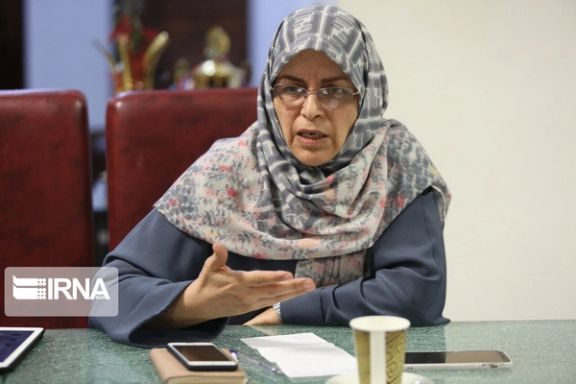
By material support, she meant billions of dollars Iran has given to groups such as Hezbollah, Hamas and Islamic Jihad. And by “elsewhere in the world,” she meant China in particular.
However, due to the intense censorship in Iran, Mansoori couldn't explicitly state that Iranians are deeply frustrated with their government for allocating funds that should have been used for their welfare to Palestinian groups recognized internationally as terrorists.
Meanwhile in an article on Etemad Online, reformist commentator Abbas Abdi cautiously warned the government to avoid premature decisions as "Israel and Hamas are not the only players in this war and no one knows what the future holds for them" and for Iran. "It is like a coin tossed in the air and it could flip in many ways before it finally lands."
Speaking about the gruesome nature of some of the pictures released from the first day of the attack about the way Hamas treated hostages, particularly women and children, Abdi suggested that it should have respected the rules of war, adding that Hamas's behavior could portray an image of the group that elicits hatred. He added that Israel's behavior over the years has triggered the same kind of reaction.
Abdi, who is one of a handful of reformist commentators allowed to write in the media, added that the problem of Palestine cannot be solved by use of force and a sustainable agreement is needed to end the conflict.
He also expressed the view that the attitude projected by Iran regarding the war, which includes endorsing the mistreatment of hostages and those who have been killed, or encouraging such behavior, is more detrimental to Iran than any actual war. Abdi recommended that Iranian officials' rhetoric should encompass a combination of ethical and humanitarian principles alongside national interests.
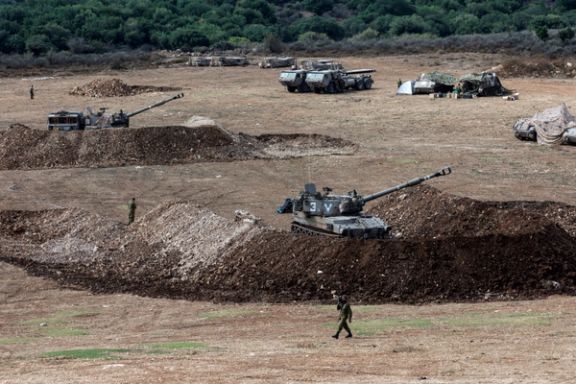
The Israeli military has launched an offensive against the Gaza Strip in response to the devastating weekend attack by Hamas that killed hundreds of Israelis.
The IDF said Monday that it had called up an unprecedented 300,000 reservists and was imposing a total blockade of the coastal sliver. After hours of intense bombardment by Israeli jets, the Iran-backed Islamist group, which controls Gaza, said it would execute Israeli captives and broadcast the footage.
Despite the US downplaying Tehran’s involvement in the attack, more and more reports are surfacing implicating the regime in the worst Palestinian attack on Israel in decades.
A White House spokesperson said on Monday that Iran is complicit even though the United States has no intelligence or evidence that points to Iran's direct participation in attacks. "Iran has long supported Hamas and other terrorist networks throughout the region with resources capabilities training," White House national security spokesperson John Kirby said on MSNBC. "And so in that regard, clearly, Iran is complicit here, but in terms of specific evidence on this, these sorts of attacks, no, we don't have anything.”
Many on social media have criticized the administration for its insistence of not having direct evidence, despite Hamas and Hezbollah officials admitting Tehran's support.
Israeli President Isaac Herzog has also said there is no evidence of Iran’s involvement, but other Israeli have noted that Iran is a key sponsor of Hamas, providing money, equipment and training.
“Initially, we didn’t think that they did. Now there’s some evidence that they might have known about it. We are working to verify that evidence,” Israeli Strategic Affairs Minister Ron Dermer said.
“Iran is involved, but a distinction must be made between the strategic aspect and the operational aspect,” said Major General Amos Yadlin, former head of the Israel Defense Forces’ Military Intelligence Directorate.
In an exclusive report on Sunday, the Wall Street Journal quoted senior unnamed Hamas and Hezbollah members, who said Iranian officials were involved in planning the large-scale operation and the final decision to launch the operation was made in Beirut October 2.
A senior Israeli government source told reporters Monday that Israel has indications that Iran pushed Hamas into carrying out its massive infiltration and deadly assault.
Iran is also pushing Hezbollah to be ready for conflict with Israel, the senior source added. Israel has warned Hezbollah against joining the war following Hezbollah's attacks on its bases at Syrian border regions. In a message delivered to Hezbollah leader Hassan Nasrallah through senior officials in the French government, Israel has threatened to destroy Damascus and may even consider eliminating Iran-backed Syrian President Bashar al-Assad.
Additionally, US warships will support Israel in such actions. US Defense Secretary Lloyd Austin said Saturday that US will send multiple warships and aircraft closer to Israel as a show of support. Israeli media outlet Ynet said that the White House is working to obtain approval from Congress to participate in a possible operation against Hezbollah.
Israeli troops "killed a number of armed suspects that infiltrated into Israeli territory from Lebanese territory", the military said, but a Hezbollah official denied that the group had mounted any operation into Israel.
Israel has not specified how long the war will last, but the senior source said it will continue for many days, perhaps many weeks, and possibly longer than that.
Some Hamas fighters were still holed up in several locations inside Israel on Monday evening, two days after they killed hundreds of Israelis and seized dozens of hostages in a raid that caught Israel by surprise. According to Israeli TV channels, the death toll from the Hamas attack had climbed to 900.
Abu Ubaida, the spokesman of the Izz ad-Din al-Qassam Brigades, the military wing of Hamas, said Israeli captives are kept safe in accordance with Islam, warning, however, that in return for every Israeli bombing of a civilian house without warning, it will begin executing an Israeli civilian captive and broadcast it.
In Gaza, Israel pressed on with its most intensive retaliatory strikes ever, which have killed more than 670 people since Saturday. Defense Minister Yoav Gallant announced a tightened blockade, which would prevent even food and fuel from reaching the strip, home to 2.3 million people. Israeli strikes have hit several Hamas security headquarters and ministries.
According to a cabinet member from Prime Minister Benjamin Netanyahu's Likud Party, a national unity government joined by opposition leaders will be set up. Netanyahu told mayors of southern towns hit by Saturday's surprise assault that Israel's response would "change the Middle East".
"The price the Gaza Strip will pay will be a very heavy one that will change reality for generations," Defense Minister Gallant said in Ofakim, one of the towns that had been attacked.
Hamas is just one of Iran-backed armed groups across the region, with their reach extending from Iraq and Syria to Lebanon and Yemen. In recent years, these proxy militias have carried out attacks on various fronts, including targeting US military facilities in Iraq, striking Aramco oil sites in Saudi Arabia, and conducting operations against commercial ships in the Persian Gulf.
"Hamas asked for war and it will get war," Netanyahu said Monday evening.
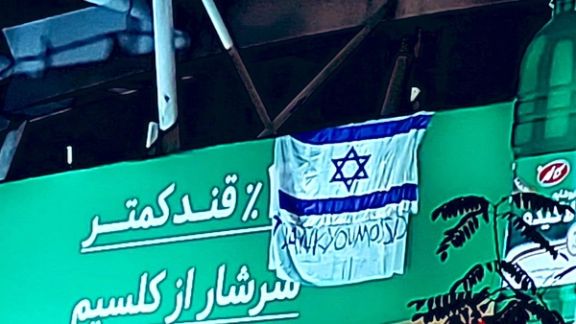
While the Islamic Republic is cheering about the war in Israel, Iranians’ reactions to the regime’s propaganda indicate a complex societal schism.
Iranian media and social media platforms are awash with posts and discussions about the ongoing conflict, but some clips are more telling than others to grasp people’s nuanced perspective on the war. The sentiments within Iran are far from uniform as the regime intensifies its rhetoric in support of the war, and people are tired of the hackneyed propaganda of the regime that aims to justify the atrocities.
While countless posts sympathetic to Israelis who have suffered the biggest loss of life in one day since the holocaust are promoting hashtags such as “Iranians Stand With Israel,” the regime and its cyber minions are promoting their own narrative, reposting hashtags for Hamas’ appellation of the attack: “Operation al-Aqsa Storm.”
Several leading Iranian opposition figures such as exiled prince Reza Pahlavi have also spoken out in support of Israel, reiterating that the regime’s narrative does not represent the feelings of ordinary Iranians.
A clip from an Iranian entertainment talk show has become viral on online spaces in the past few days, featuring a woman who passionately said if she had “two kilograms of explosives,” she would detonate Israeli Prime Minister Benjamin Netanyahu. Knowing that such statements are well rewarded by the authorities in Iran, another guest of the show took the floor saying that “it’s a waste to spend two kilograms of material on him.”
He added that a matchstick would suffice to burn him claiming that he burns fast because he is ‘najis’ -- an Islamic term referring to something dirty that cannot be cleaned. In a gleefully abhorrent tone, the woman said he cannot be killed with a matchstick. Everybody in the show, which is by no means a serious political program, are smiling and having fun talking nonchalantly about killing the Israeli premier.
The regime has also erected large banners to advertise the attack in Tehran in several major cities, and has held large celebrations, distributing candies and drinks on streets for the attacks that have already killed around 900 Israeli civilians and soldiers, in an attempt to shape how the Iranians feel about the war.
However, another viral clip pictures the true feeling of Iranians about the regime’s support for its proxy war. On Sunday, thousands of Iranian football fans chanted for the removal of Palestinian flags from the pitch during Tehran’s popular club Persepolis match against Golgohar. Contrary to regime-sponsored events, in which slogans are provided by the regime propagandists, football fans in Iran expressed their thoughts uncensored and spontaneously. They could be heard shouting, "Take that Palestinian flag and shove it up your A**!"
Iranians are also using other slurs against the travesty that the regime tries to promulgate, calling the operational codename of Hamas attack “the al-Aqsa f**t” instead of storm.
It stands in stark contrast to the rest of the Arab world where street protests show people coming out in the masses to celebrate the Hamas operation. Scenes in countries such as Iraq, Turkey and Lebanon show the ongoing support for Palestine which has become one of the most sensitive issues in the Middle East.
Another clip that can shed light on the spirit of Iranians regarding Israel was from 2020 but has become viral again after the Saturday attack in which thousands of rockets rained down on Israel from 6am and dozens of armed militia troops invaded by land, sea and air. In the clip, crowds of people are seen outside Tehran’s Beheshti University refusing to trample over a giant Israeli flag that had been painted on the ground.
The Islamic Republic paints large US and Israeli flags at the entrance gates of schools, universities, garrisons and many other state buildings to force people to walk on them as a symbolic hate gesture. Walking on or burning these flags has been a feature of almost all regime-sponsored demonstrations. The refusal to step on the flags was not a single incident and has been captured in several videos of other gatherings.
Taken together, these clips and reactions paint a complex mosaic of Iranian sentiment towards the Israel-Hamas conflict. A significant portion of the population remains opposed to the narrative of the regime, which does not reflect the views of the Iranians.
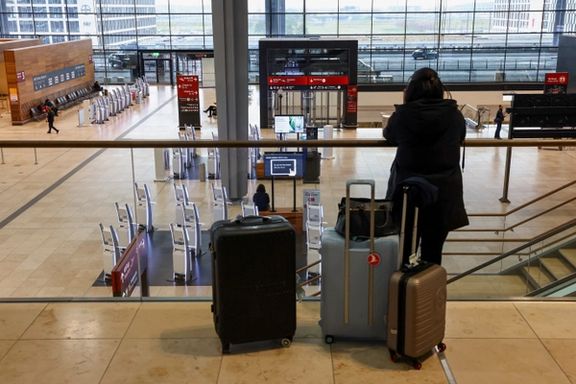
Flights to and from Hamburg Airport were temporarily halted following a security threat directed at an incoming plane from Iran.
According to officials, the suspension lasted approximately 90 minutes on Monday. Takeoffs and landings at the airport ceased at 12:40 p.m. (1040 GMT), with some incoming flights being rerouted to Hanover and other locations, as reported by the German news agency.
Operations eventually resumed, although the airport cautioned passengers about possible delays on its website.
The incident unraveled after the federal police were sent an email threat. All 198 passengers and 16 crew members underwent security screening, and a thorough inspection of the aircraft and its cargo was conducted.
The German air force announced on its social media platform X that it provided an escort to the aircraft upon its entry into German airspace to the east of Berlin, in response to a bomb threat.
The incident occurred in the context of heightened tensions in the region, as the Palestinian militant organization Hamas recently initiated hostilities with Israel. There have been allegations suggesting Iranian involvement in supporting Hamas's actions.
The US secretary of state Antony Blinken has so far said there is no evidence to prove Iran's involvement, while on Monday, British Prime Minister Rishi Sunak said only that the question would be addressed in due course.